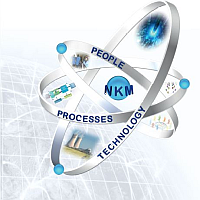Speaker
Mr
Ashok Jashapara
Description
Governments recognize that their economic productivity and growth is driven by knowledge, technology and learning; namely the knowledge economy. There are no blueprints on how to best to manage knowledge enterprises and knowledge workers in this new context. This paper examines the knowledge management practices of some international firms to assess how they manage their intangible assets. The firms chosen have all won the Most Admired Knowledge Enterprises (MAKE) awards. They include Ernst & Young (US), Toyota (Japan), World Bank, Infosys (India), Unilever (UK/Netherlands), Honda (Japan), Royal Dutch Shell (UK/Netherlands) and Tata Consultancy Services (India). The focus of the paper is on the practices and real issues encountered by these firms rather than whether they support or challenge current knowledge management theory or orthodoxy. The paper concludes by exploring key lessons learned by these firms and their application to challenges among nuclear energy agencies.
| Country or International Organization | United Kingdom |
|---|
Author
Mr
Ashok Jashapara

